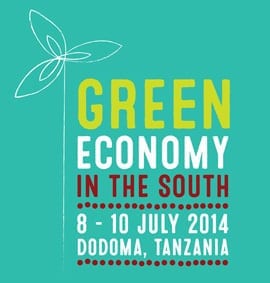The Green Economy in the South conference is currently underway at the University of Dodoma in Tanzania.
Hosted by the Department of Geography and Environmental Studies, the conference will critically examine different tools and approaches that inform Africa’s green economy strategies and will be opened by Idriss Kikula, the vice chancellor of University of Dodoma, who will give the keynote address. The momentum gathering behind the idea and practice of the Green Economy is coinciding with financial instability and continued economic woe in the North, but generally happier economic circumstances in the South. Africa’s economies are growing and ‘green economic initiatives’ are part of these changes.The three-day international conference will bring together researchers and activists mainly from the South to debate and learn different phenomena of green economic initiatives, including carbon payments, Corporate Social Responsibility initiatives and offsets by mining companies exploiting new resources, opportunities for commercialisation and integration into wealth-generating markets. One of the aims of the event is to bring together field-based research with theoretical ideas about framing and context of Green Economy issues.
“We are convening it in Tanzania because we want the focus of this conference to be about the growth of Africa’s green economy initiatives. Africa’s expanding economy calls for initiatives that pave way for a better, more sustainable development,” says Thabit Jacob of University of Dodoma. This conference builds on a series of sister conferences held in Europe and North America. It is sponsored by United Nations Environment Programme (UNEP), the UK Department for International Development (UKAID) and co-hosted by the Institute for Poverty Land and Agrarian Studies (PLAAS), University of the Western Cape; the Institute for Development Policy and Management (IDPM), University of Manchester; the Institute for Social Studies (ISS), Erasmus University; the Sustainability Platform, Copenhagen Business School (CBS); and the Future Agricultures Consortium.






